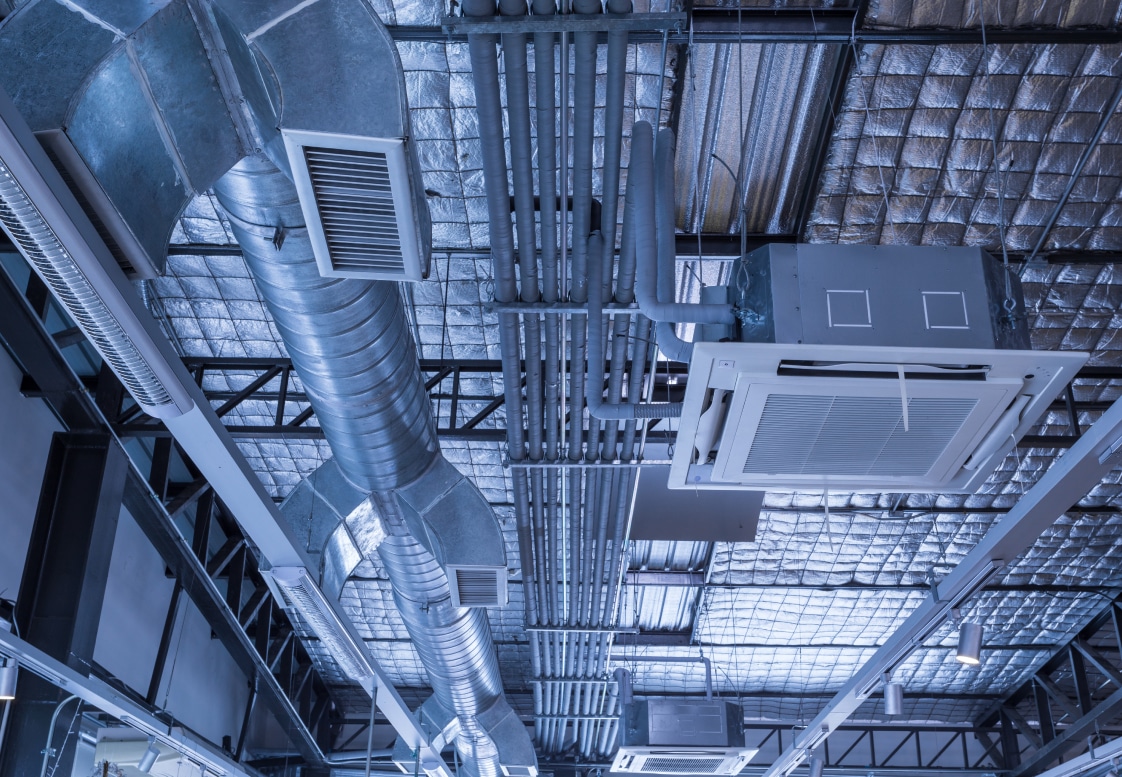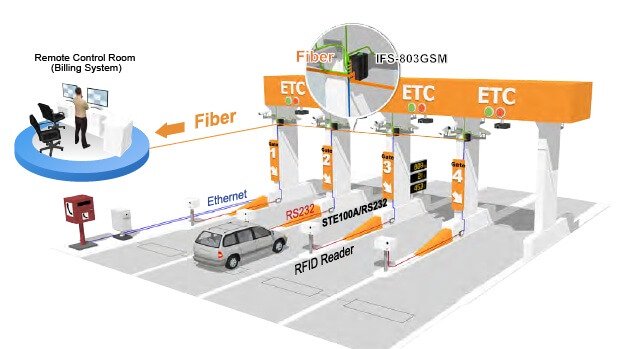Indonesia HVAC Systems Market: Trends, Growth, and Adoption of Eco-Friendly Refrigerants

Strong 8k brings an ultra-HD IPTV experience to your living room and your pocket.
Introduction
The Indonesia HVAC Systems Market has been witnessing rapid growth over the past decade. This growth is fuelled by increasing urbanization, industrial expansion, and the rising demand for comfort and energy efficiency in both residential and commercial sectors. A key trend within this market is the adoption of eco-friendly refrigerants, a critical factor in Indonesia's commitment to reducing its carbon footprint. This article explores the key drivers of the HVAC systems market in Indonesia, highlights emerging trends, and discusses the growing focus on sustainable refrigerants.
Market Overview
The HVAC systems market in Indonesia is experiencing significant growth due to several key factors, including the country's burgeoning urban population, increased construction activities, and the rapid rise in disposable income. Indonesia’s tropical climate further accelerates the demand for cooling systems, both for residential and commercial purposes. With the government's push toward energy-efficient solutions and environmental sustainability, the HVAC market is expected to continue expanding in the coming years.
Key Market Drivers
1. Urbanization and Infrastructure Development
Indonesia is one of the fastest-growing economies in Southeast Asia, with its urban population steadily increasing. As cities expand and new buildings emerge, the demand for HVAC systems—ranging from air conditioners to ventilation solutions—continues to rise. Jakarta, Surabaya, and other metropolitan areas are experiencing a construction boom, contributing to the demand for both residential and commercial HVAC installations. The growing demand for smart homes, offices, and commercial buildings is also driving the need for advanced HVAC solutions that are energy-efficient and environmentally friendly.
2. Rising Disposable Income
As Indonesia's middle class grows, more people are able to afford higher-end HVAC systems. With disposable incomes on the rise, consumers are increasingly opting for air conditioning systems, central cooling units, and other HVAC solutions to improve their quality of life. The residential sector is a major contributor to this growth, as people seek to create more comfortable living spaces in their homes.
3. Industrial Growth
In addition to residential demand, the industrial sector in Indonesia is also a significant driver of the HVAC systems market. Factories, data centers, and warehouses rely heavily on HVAC systems for temperature control and ventilation to maintain optimal working conditions. As the industrial sector continues to expand, there is an increasing need for energy-efficient HVAC solutions to support operations while minimizing energy costs.
4. Government Initiatives and Policies
The Indonesian government has recognized the importance of improving energy efficiency and reducing environmental impacts. Policies and regulations are being introduced to encourage the adoption of energy-efficient systems and sustainable practices within the HVAC market. These policies are aimed at promoting the use of low-emission systems and supporting the overall goal of reducing Indonesia's carbon footprint.
Emerging Trends in Indonesia HVAC Systems Market
1. Energy-Efficiency Focus
One of the most notable trends in the Indonesian HVAC systems market is the increasing emphasis on energy-efficient solutions. Consumers and businesses alike are becoming more conscious of their energy consumption, seeking products that offer lower operational costs while still delivering optimal performance. The demand for energy-efficient air conditioning units, ventilation systems, and heating solutions has surged, leading to a rise in the adoption of inverter-based systems, which adjust their speed according to the cooling or heating requirement.
2. Integration of Smart Technologies
The integration of smart technologies into HVAC systems is transforming the way these systems are managed. Smart thermostats, remote controls, and IoT-enabled solutions allow users to monitor and control their HVAC systems more efficiently. This trend is gaining traction among both residential and commercial sectors in Indonesia, with businesses particularly keen on implementing smart HVAC solutions to optimize energy use and reduce operational costs.
3. Green Building Certifications
As environmental awareness increases, many developers and builders in Indonesia are focusing on obtaining green building certifications, such as LEED (Leadership in Energy and Environmental Design) and Green Building Council Indonesia (GBCI) ratings. These certifications often require the installation of energy-efficient HVAC systems that use sustainable technologies and reduce greenhouse gas emissions. The increasing demand for green buildings is directly benefiting the HVAC market, as systems that comply with sustainability standards are becoming a necessity in new construction projects.
Adoption of Eco-Friendly Refrigerants
One of the most significant shifts in the HVAC systems market is the adoption of eco-friendly refrigerants. Traditionally, HVAC systems have used refrigerants such as hydrochlorofluorocarbons (HCFCs) and hydrofluorocarbons (HFCs), which are harmful to the environment and contribute to global warming. However, with global and local regulations tightening around the use of these refrigerants, there has been a noticeable shift toward more sustainable alternatives.
Global and Local Pressure for Sustainable Refrigerants
Indonesia is a signatory to the Kigali Amendment of the Montreal Protocol, which aims to phase out the use of high global warming potential (GWP) refrigerants by 2030. This international agreement puts pressure on industries worldwide to transition toward refrigerants with lower GWP. In line with these global commitments, Indonesia is also pushing for the phase-out of HFCs and the adoption of more eco-friendly refrigerants. The local government has been encouraging HVAC manufacturers to shift to alternatives that are both energy-efficient and less damaging to the ozone layer.
Types of Eco-Friendly Refrigerants
The most widely used eco-friendly refrigerants are hydrofluoroolefins (HFOs), natural refrigerants like carbon dioxide (CO2), ammonia (NH3), and hydrocarbons (propane, isobutane), and newer synthetic refrigerants that have a significantly lower GWP than HFCs. For instance, R-32, a low-GWP refrigerant, has gained popularity in the Indonesian market as a replacement for R-410A, a common refrigerant in residential air conditioners. It is not only energy-efficient but also offers a lower impact on the environment compared to traditional refrigerants.
Benefits of Eco-Friendly Refrigerants
The adoption of eco-friendly refrigerants offers several benefits to both HVAC manufacturers and consumers. For manufacturers, transitioning to low-GWP refrigerants ensures compliance with international environmental standards and local regulations, while also enhancing the reputation of their brand as environmentally responsible. For consumers, eco-friendly refrigerants lead to lower environmental impacts, reduced energy consumption, and long-term cost savings on maintenance and energy bills.
Challenges in Adoption of Eco-Friendly Refrigerants
Despite the clear benefits of adopting eco-friendly refrigerants, there are several challenges that need to be addressed for widespread adoption in Indonesia’s HVAC market. These challenges include:
1. High Initial Costs
The upfront cost of HVAC systems that use eco-friendly refrigerants can be higher than traditional systems. While the long-term benefits of reduced energy consumption and lower maintenance costs can offset this initial investment, many consumers and businesses in Indonesia may hesitate due to the higher upfront costs.
2. Lack of Infrastructure
The transition to eco-friendly refrigerants requires new infrastructure, including specialized equipment and trained professionals to handle the installation, servicing, and repair of systems that use these refrigerants. The lack of adequate infrastructure and technical expertise in some parts of Indonesia could slow down the widespread adoption of these technologies.
3. Consumer Awareness
While there is growing awareness about the importance of eco-friendly refrigerants, many consumers in Indonesia may still be unaware of the benefits of switching to lower-GWP refrigerants. This highlights the need for increased awareness campaigns and educational initiatives to inform both consumers and businesses about the advantages of using sustainable refrigerants in HVAC systems.
Conclusion
The HVAC systems market in Indonesia is on a strong growth trajectory, driven by urbanization, rising disposable incomes, and the increasing need for energy-efficient solutions in both residential and commercial sectors. The adoption of eco-friendly refrigerants is a crucial trend that aligns with global environmental goals and the country's regulatory frameworks. While there are challenges in transitioning to these sustainable solutions, the long-term benefits, including reduced environmental impact, lower energy consumption, and compliance with international standards, make the adoption of eco-friendly refrigerants a necessary step for the future of Indonesia’s HVAC market. As the market continues to evolve, companies that prioritize energy efficiency and environmental sustainability are likely to gain a competitive edge in this rapidly growing industry.
Note: IndiBlogHub features both user-submitted and editorial content. We do not verify third-party contributions. Read our Disclaimer and Privacy Policyfor details.







